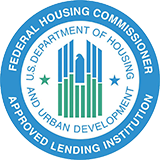What is a Buyer's Market vs. Seller's Market?
If you want to buy or sell a home, it’s important to know if it’s a buyer’s market or a seller’s market. Here’s how.
Buyer’s Market Definition
A buyer’s market occurs when the supply (available properties for sale) exceeds demand (the number of buyers seeking to purchase properties). If you’re buying a new home, a buyer’s market is the ideal time to make your move. You might be able to buy a great home for a lower cost than you would in a seller’s market.
If you’re trying to sell your property in a buyer’s market, your home may remain on the market longer before you’re able to secure a buyer due to the large number of available properties. You may also have to lower your listing price or make other concessions in order to secure a buyer.
Seller’s Market Definition
A seller’s market occurs when demand exceeds supply, or there are more buyers seeking to purchase properties than there are available homes on the market. This often leads to multiple buyers interested in a single property, resulting in bidding wars. A seller’s market is a fantastic time to sell your home as you could secure a sale price that’s higher than your listing price, or at least more than your bottom line (the lowest price you’d be willing to accept for your home).
If you’re buying a home in a seller’s market, be aware that the seller has the advantage. If other buyers are interested in the same property you’re making an offer on, trying to get a lower sale price probably won’t work to your advantage. In fact, you could lose the opportunity to purchase the property altogether if a competing buyer makes a higher offer. Seller’s markets are sometimes called “renter’s markets” for this reason; sometimes potential buyers need to keep renting until they can save up a higher down payment and compete with other buyers in the market.







